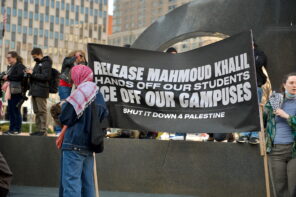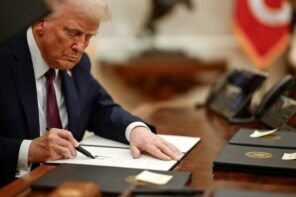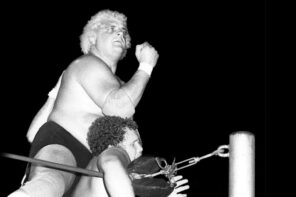Many political observers are noting Mitt Romney’s stronger-than-usual performance in last night’s debate, and attributing it to his new debate coach, Brett O’Donnell.
One answer, in particular, appears to bear the fingerprints of the advice of the former star debate coach at Liberty University. Moderator Wolf Blitzer asked the candidates (sigh) about how their religion would impact their deicion-making. Romney:
I would also seek the guidance of — of providence in making critical decisions.
And of course, ours is a nation which is based upon Judeo- Christian values and ethics. Our law is based upon those values and ethics. And in some cases, our law doesn’t encompass — encompass all of the issues that we face around the world.
The conviction that the founders, when they wrote the Declaration of Independence, were writing a document that was not just temporary and not just for one small locale but really something which described the relationship between God and man — that’s something which I think a president would carry in his heart.
So when they said, for instance, that the creator had “endowed us with certain unalienable rights, among them life, liberty and the pursuit of happiness,” I would seek to assure that those principles and values remain in America and that we help share them with other people in the world, not by conquering them, but by helping them through our trade, through our various forms of soft power, to help bring people the joy and — and — and opportunity that exists in this great land.
Compare that to an answer he gave in an October 2011 debate, during the height of the firestorm over Pastor Robert Jeffress’s “cult” comments. The moderator had asked whether voters should care about a candidate’s religion:
[T]he founders of this country went to great length to make sure — and even put it in the Constitution — that we would not choose people who represent us in government based upon their religion, that this would be a nation that recognized and respected other faiths, where there’s a plurality of faiths, where there was tolerance for other people and faiths. That’s bedrock principle.
As I wrote at the time, Romney had a conundrum: needing to defend free exercise of religion (an in particular, his religion), but realizing that the Republican base demands the “Judeo-Christian” answer. Given that many conservative evangelicals don’t even think Romney’s religion is part of Christianity, when he gave the “Judeo-Christian” answer last night I cringed—because he didn’t balance it with a free exercise answer. In other words, while he doesn’t need to defend Mormonism, he should defend his right to practice it (or anyone else’s right to practice their religion). Instead, he hewed to the “Judeo-Christian” answer, one intended to comfort conservatives who fret that Mormonism isn’t Christian, but that nonetheless reinforces their notion that it is not, because it developed not only after Christianity, but after America’s founding. (Gingrich, on the other hand, took the opportunity to rail against “an increasingly aggressive war against religion and in particular against Christianity in this country, largely by … largely by a secular elite and the academic news media and judicial areas.”) Romney’s answer was clearly aimed at making sure no one thought that his Mormonism would impact his decision-making, but that his embrace of the Christian right’s “Judeo-Christian values” framing would.
According to a 2006 article by Zev Chaftez, Liberty University’s founder, Moral Majority founder Jerry Falwell, who hired O’Donnell to coach his debate team, “spared no effort to make his school into a national debate power.” Why? “Our debate program can, by producing advocates who know how to argue for Judeo-Christian ethics and the American Constitution,” Falwell told Chafetz. “We have 32 kids on our team this year, and they’ll all be lawyers or leaders of some sort. Our goal is to create an army of people who know how to make our case.”
Liberty was a door for O’Donnell to the political world; he’s moved on from college students to politicians on the national stage. He worked for the 2004 Bush/Cheney campaign, and now has his own consulting firm. He admitted to Chafetz that he’s a “Christian ideologue” (Chafetz’s term), but “would I work for a candidate who isn’t a Christian, somebody with the same core principles as mine? Sure. Mitt Romney for example; he’s a Mormon, but our beliefs are similar. I’d work for an atheist if he shared my values.” Although I doubt even he could persuade an atheist to say the country was founded on “Judeo-Christian values.”













